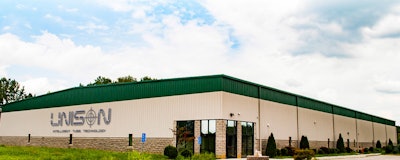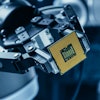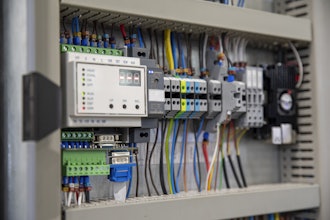
Manufacturing represents many things to many people. It’s a key component in a strong economy, an industry that provides excellent jobs for people who thrive on working with machines and tools, and a source of careers that support the American Dream. Manufacturing’s image suffered somewhat in the 1980s and 1990s, and enrollment in vocational programs dropped, but lately vocational program enrollment has been growing. According to data from the National Center for Education Statistics, enrollment in certificate programs and associate degree programs grew 76 percent from 2000 to 2014, outpacing enrollment growth in baccalaureate programs, which grew 51 percent in the same time frame.
Two schools in Danville, Va., have become a part of this growing trend. On Sept. 7, Virginia’s governor, Terry McAuliffe, and several other state and local officials participated in a ribbon-cutting ceremony to open a precision machining lab in Danville’s George Washington High School.
“What we are doing here today at George Washington High School is truly extraordinary,” McAuliffe said. “These students in the first year of the program are leading the way. I want to congratulate all of you here today for what you have done for Danville.”
Superintendent of Schools Dr. Stanley B. Jones called the program a historic investment.
“This program honors our community’s past success as a manufacturing hub while demonstrating our resolve to create the future we believe in for our students,” Jones said. “A 21st century learning environment should be nearly identical to an industry work environment such that our students are truly prepared to begin their careers.”
This is precisely what the program achieves, according to Alan Pickering, the joint managing director of Unison Ltd., Scarborough, North Yorkshire, U.K. and Unison Tube LLC, Candler, N.C. Rather than learning to make parts, the students master every step of the processes needed for making parts, he said. “This is a mixture of practical and academic education, very much in line with the University Technical College we opened in Scarborough. More than 20 percent of the workforce in the U.K. have come through the apprenticeship route, and these are some of my most talented employees. We need students who understand the basic principles of manufacturing, have a solid foundation in mathematics and information technology — after all, getting a degree isn’t everything.”
“It’s not just coursework, but challenges — dealing with obstacles, assessing processes, learning to improve productivity, and other real-world situations to learn what industry needs,” he said. “In this program, each student has to source his own material, create documentation, and develop the process flow. We very much hope this new way of teaching and learning brings some of our most talented men and women into this exciting industry.”
The program is modeled after the one in place at Danville Community College and will serve as a feeder for high school students who want to continue their studies at the community college or another institution.
The program does away with common criticisms of vocational programs — that the machines are too few and too old — according to Pickering. In conventional programs, students work in groups, which is to the detriment of students who are low in motivation, but perhaps the most talented.
“In this program each student has his own machining center, and every student has to do everything. There’s nowhere to hide,” he said, adding that many of the machines have 5-axis technology. “It’s not a matter of making parts,” he said. “It’s a matter of using these technologies to solve problems. We need to teach problem-solving and resourcefulness, because life doesn’t always go according to plan.”
Danville Community College currently offers four programs that focus on machining: precision machining technology, integrated machining technology, CNC flow cell machining, manufacturing technician, and metal processing. Soon machining will be augmented by another technology — bending tube and pipe — as Unison announced on Sept. 7 that it will open a manufacturing and training facility in the Danville area. The company’s proposal involves a $4.2 million investment to renovate a 40,000-square-foot facility and install about $1 million worth of equipment.
“We’ll be working very closely with all the local colleges to provide tailor-made training courses that cover tube bending, simulation, and automation, and we’ll provide this service for our customers in industry as well,” Pickering said. The company expects to create 35 jobs in three years and 55 jobs in five years.
“Some of the Danville team members are coming over to the U.K. so the two groups can learn from each other, exchange best practices, and ensure that we have the most robust programs possible as we go forward.” he said. “These students will be the manufacturing leaders of tomorrow.”
Eric Lundin and the Danville city government’s press office contributed to this report.






















